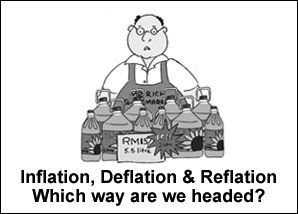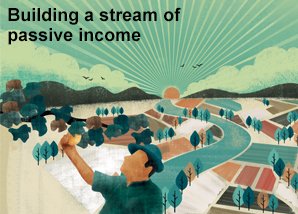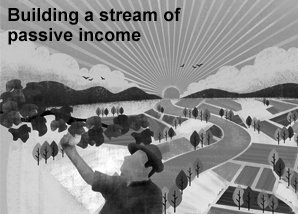The Property Play

Most people will tell you that the safest investment you can ever make is in property. Does that mean now is a good time to get in on the act with the recovering economy?
As the Malaysian economy continues to show robust recovery, the appetite for investment has continued to increase in the country. The property sector, which has long been the darling investment vehicle of Malaysians, has registered an upswing in 2010.
And why not? Regardless of whether you are a first-time homebuyer or an investor looking at property investments, the benefits of buying property are obvious. In general and in some instances, property investments may provide a more stable, steady level of income and a more secured level of return on investment compared to other investment vehicles like the stock market.
But not every property is created equal. Even though the recovering economy may be boosting the property market, the right choices still have to be made – just like any other investment decision.
All Systems Go!
If numbers are anything to go by, then the property market in Malaysia – particularly the housing sector – is certainly on a hot streak. According to the National Property Information Centre in its latest property market report, average house prices have risen 19% to RM273,000 in the first half of 2010 compared to RM220,000 in the same period last year1.
Kuala Lumpur experienced an even stronger increase in prices. House prices jumped 35% to more than RM700,000 in the first half of this year, up from RM523,000 last year1.
Experts back this upward trend. In his talk entitled “Is It a Good Time to Invest in Real Estate?” during the three-day Star Property Fair 2010 in July, Capital Sanctuary Managing Director, Dr. Christopher Shun said that over an 18-year period from 1992, the average positive correlation between the Malaysian equity and property market was 76.54%2.
“Thus, one can safely conclude that a 20% increase in the Malaysian equity market would adduce a 15.3% increase in the Malaysian property market,” said Dr. Shun.
Dr. Shun said that the property market could also expect a boost from the growth in trade surpluses of the country. “Our Ringgit is depreciating, making our exports cheaper, and enabling the countries in the [Asian] region to buy more from us. This creates an overwhelming tide of liquidity which will first make its way into the equity markets and then spill over into the property and commodity markets,” he said.
Iskandar Associates principal Dr. Iskandar Ismail holds a similar positive view on the local property market. “Although the economy is slightly uncertain, the local property market has solid long term fundamentals.
You will make a good return once the boom comes in a few years. Income from rental plus capital growth and tax benefits make property an unbeatable investment,” he said in his talk titled “Profiting from Real Estate Investment” at the same event1.
Make Wise Choices
According to DTZ Research’s Property Times, Kuala Lumpur Q1 2010 report, the country’s residential sector continued to experience selective improved demand particularly for niche residential and high-end landed residential properties. However, high-end condominiums in the capital experienced a drop in capital values and stagnant rents due to the high level of new supply.
“The short-term outlook for high-end condominiums and apartments is plagued by the danger of oversupply. This is coupled with a decline in foreign expatriates with large rental budgets. Combined, these forces will exert downward pressure on both capital and rental values going forward,” the DTZ report noted.
So while luxury properties are still the pick of the crop, it may no longer represent a sure bet to good returns. In fact, Petaling Jaya has shown significant latent demand for well-priced projects as evidenced by the brisk sales of the Five Stones project3.
A potential cause for concern with the strong jump in house prices over the past six months is that if speculative buying goes unchecked, it may cause overheating and result in a property bubble.
Reining In The Rise
After several months of speculation that Bank Negara Malaysia would introduce measures to curb excessive speculation on properties in the country, the central bank finally made the move in November. In The Star Online’s report entitled “Buyers to pay more after second house” on November 4, 2010, the move was confirmed with Bank Negara announcing with immediate effect the implementation of a maximum loan-to-value (LTV) ratio of 70% for people buying their third house or more.
What this means is that investors wanting to purchase a third property and beyond have to come out with their own cash amounting to 30% of the value of the property they are intending to purchase.
Even though this move may not be agreeable with the industry and consumer groups because of the potential dampening effect on the level affordability and buying sentiment as reported previously by The Star1, it seems to be a pre-emptive move by the central bank to minimise the possibility of a property bubble and eventual burst.
“Financing facilities for purchase of the first and second homes are not affected and borrowers will continue to be able to obtain financing for these purchases at the present prevailing LTV level applied by individual banks based on their internal credit policies,” Bank Negara said in the statement announcing this new measure. The central bank added that while property prices had increased steadily and remained manageable compared with historical trends at the national level, faster growth in prices and transactions had been seen in certain hot locations particularly in urban areas.
“This is further supported by an increase in financing provided for multiple unit purchases by a single borrower, suggesting increasing investment activity that is of a speculative nature,” it said.
While the LTV cap could dampen the property market, demand for quality products in prime locations should continue to remain strong, although buyers would definitely be more selective1.
Future Still Bright
Despite the move by Bank Negara, property investment should still be a viable investment vehicle moving forward.
Real Estate and Housing Developers Association president Datuk Michael Yam said the association supported the measure as it would ensure a healthier and orderly housing market.4
“There are some hot spots in the housing market where prices have appreciated higher than the average price increases in other locations. As financing for the first and second housing properties will not be affected by the ruling, the move is not expected to dampen the performance and growth of the housing property sector.”4
Tan Sri Leong Hoy Kum, Group Managing Director and Group Chief Executive of Mah Sing Group Berhad concurs. “The move should not significantly affect the overall sentiments of the market which comprises mainly first-time buyers and upgraders.”4
“As long as developers offer quality properties with good concepts in prime locations, there should still be takers due to our strong employment market, low interest environment and good liquidity in our financial system,” he added.4
Meanwhile, National House Buyers Association Honorary Secretary-General Chang Kim Loong said the measure would help curb speculative buying in the local housing market.4
Like other forms of investments, making the right property investment could potentially pay huge returns down the road. If you are planning to invest in a property, do speak to your Relationship Manager about how we can help you finance your purchase. We can help you choose a home financing that’s right for you. With a minimum home financing of RM750,0005, you will now be able to join HSBC Premier and enjoy the benefits of our global privileges and exquisite opportunities.
Greener Pastures Abroad?
Buying properties overseas is nothing new for Malaysians now, but it used to be an option limited to the elite few. With rising affluence and an increasingly borderless world, more and more Malaysians now have the ability to invest in foreign properties.
Scan through the newspapers on a weekend and you will see the huge number of advertisements marketing overseas properties. The most common countries for property investment include Singapore, Australia, New Zealand and the United Kingdom.
Is the grass really greener on the other side? If you do your homework, research and make smart investment choices, yes it can be. Obviously it would help tremendously if you are familiar with the country where you are investing in. If not, do consider some of the factors that can affect the long-term investment environment including the economic, geographical and political landscape, demographics and population, housing market, banking, finance and tax systems.
Australia, for example, seems to be a favourite amongst Malaysians when it comes to foreign property investment. And these are some of the reasons why. The country has enjoyed 16 consecutive years of stable economic growth, it has abundant natural resources, strong population and skilled migration growth which triggers demand for housing, low residential vacancy rates and constant rent increases6.
Another added advantage of investing in property in Australia is that there are generally no progressive payments to be made; just pay the 10% deposit and nothing more until completion. Furthermore, in many cases, the deposit you pay sits in trust with a bank, earning you interest until the completion of your property. This is to protect you as a buyer ensuring that the developer will only get paid once they deliver the property to you.
Profits from foreign property investment may come not only from capital appreciation; but it may also come from currency appreciation. For example, if you had bought an Australian property in March last year, you would have gained about 20% from currency appreciation alone as of October 2010 (based on the exchange rate of AUD1 = MYR2.49 on 31 March 2009 and AUD1 = MYR3.05 on 13 October 2010).
But please, don’t rush out to buy the next foreign property for sale. Do find a reputable local property agent or marketing representative to help you in your foreign property investment search. You may want to consider performing some background research on the end developer, their track record and the development itself before you sign on the dotted line.
Source:
1. The Star, “Hot property market still grabbing attention”, 8 September 2010
2. The Star Online, “Property boom coming”, 24 July, 2010
3. DTZ Research, Property Times, “Recovery weighted down by new supply”, Q1 2010
4. The Star Online, “Support for Bank Negara’s housing LVR cap move”, 4 November 2010
5. Apply for HomeSmart with a minimum financing of RM 750,000 and sign-up for HSBC Premier. Applicants for HSBC Premier in this category must meet the Premier eligibility criteria (Total Relationship Balance of RM 200,000 or more in Deposit and/or invest in Premier Savings, FlexiTime Deposits, Unit Trusts, Structured Investments, Dual Currency Investments and Direct Retail Bonds) within 24 months from the date of opening of the Premier account or immediately upon full settlement of the HomeSmart facility, whichever is earlier, failing which a Below Balance Fee of RM150 will be applied for the month.
6. OECD: ABS, Access Economics
House Buyers Association’s Investment Checklist
Your quick guide to property investment and what to look out for
![]() Decide on your budget and match it to the type of property you desire. Common options include landed residential properties, condominiums, commercial shop-offices and vacant land.
Decide on your budget and match it to the type of property you desire. Common options include landed residential properties, condominiums, commercial shop-offices and vacant land.
![]() If you are planning to buy a property from a developer, it is vital to check the developer’s background and track record including the developer’s financial standing, necessary permits and approvals, particulars of past, present and other on-going projects being undertaken.
If you are planning to buy a property from a developer, it is vital to check the developer’s background and track record including the developer’s financial standing, necessary permits and approvals, particulars of past, present and other on-going projects being undertaken.
![]() Beyond the location of the property you intend to buy, the positioning of the property and what’s in the surrounding area will also affect the future capital appreciation. Take into consideration which direction the property is facing, whether it is at a dead end lane, what are the other facilities or amenities next to the property, whether it is located next to a highway, factory or vacant land.
Beyond the location of the property you intend to buy, the positioning of the property and what’s in the surrounding area will also affect the future capital appreciation. Take into consideration which direction the property is facing, whether it is at a dead end lane, what are the other facilities or amenities next to the property, whether it is located next to a highway, factory or vacant land.
![]() Once you have made a decision to buy a property, the next step is to sign the Sale & Purchase Agreement. But before you sign on the dotted line, make sure that you check the fine print, particularly ensuring that there are no hidden costs incurred.
Once you have made a decision to buy a property, the next step is to sign the Sale & Purchase Agreement. But before you sign on the dotted line, make sure that you check the fine print, particularly ensuring that there are no hidden costs incurred.
![]() Allocate adequate time for the transaction to be completed and property to be handed over to you. If you are buying a property from a developer, delivery will normally be within two years for landed property and three years for apartments and condominiums after the launch of the development. Purchases from the secondary market usually require a period of four to six months for the deal to be concluded.
Allocate adequate time for the transaction to be completed and property to be handed over to you. If you are buying a property from a developer, delivery will normally be within two years for landed property and three years for apartments and condominiums after the launch of the development. Purchases from the secondary market usually require a period of four to six months for the deal to be concluded.
![]() Once you receive the keys to your property from the developer, the first thing you should do is conduct a thorough inspection of the property to ensure that material and fittings used are up to mark. Shoddy workmanship can drastically reduce the yields on the property and it can be difficult to dispose off in the future.
Once you receive the keys to your property from the developer, the first thing you should do is conduct a thorough inspection of the property to ensure that material and fittings used are up to mark. Shoddy workmanship can drastically reduce the yields on the property and it can be difficult to dispose off in the future.
![]() Now you can move in, put it on the rental market or turnaround and sell it for a profit.
Now you can move in, put it on the rental market or turnaround and sell it for a profit.


 LIKE THIS ARTICLE?
LIKE THIS ARTICLE?





















